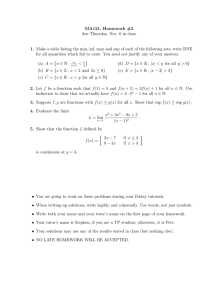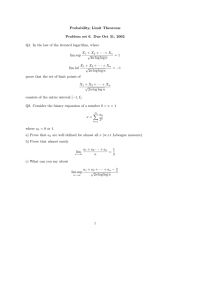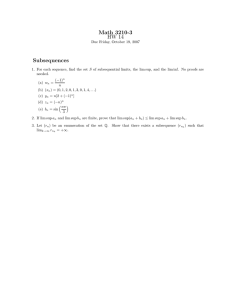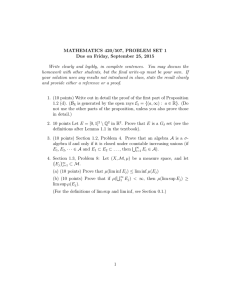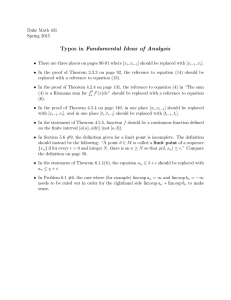One of the goals of the course is to learn... and easily understandable form. Answers submitted in sloppy form will...
advertisement
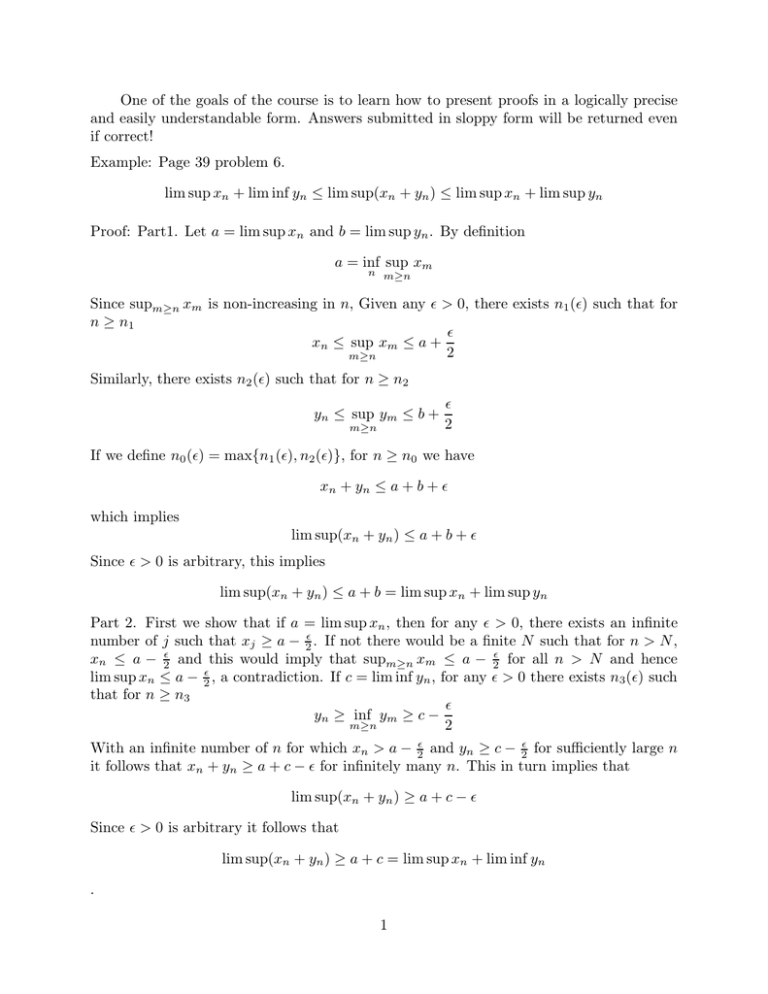
One of the goals of the course is to learn how to present proofs in a logically precise
and easily understandable form. Answers submitted in sloppy form will be returned even
if correct!
Example: Page 39 problem 6.
lim sup xn + lim inf yn ≤ lim sup(xn + yn ) ≤ lim sup xn + lim sup yn
Proof: Part1. Let a = lim sup xn and b = lim sup yn . By definition
a = inf sup xm
n m≥n
Since supm≥n xm is non-increasing in n, Given any ǫ > 0, there exists n1 (ǫ) such that for
n ≥ n1
ǫ
xn ≤ sup xm ≤ a +
2
m≥n
Similarly, there exists n2 (ǫ) such that for n ≥ n2
yn ≤ sup ym ≤ b +
m≥n
ǫ
2
If we define n0 (ǫ) = max{n1 (ǫ), n2 (ǫ)}, for n ≥ n0 we have
xn + y n ≤ a + b + ǫ
which implies
lim sup(xn + yn ) ≤ a + b + ǫ
Since ǫ > 0 is arbitrary, this implies
lim sup(xn + yn ) ≤ a + b = lim sup xn + lim sup yn
Part 2. First we show that if a = lim sup xn , then for any ǫ > 0, there exists an infinite
number of j such that xj ≥ a − 2ǫ . If not there would be a finite N such that for n > N ,
xn ≤ a − 2ǫ and this would imply that supm≥n xm ≤ a − 2ǫ for all n > N and hence
lim sup xn ≤ a − 2ǫ , a contradiction. If c = lim inf yn , for any ǫ > 0 there exists n3 (ǫ) such
that for n ≥ n3
ǫ
yn ≥ inf ym ≥ c −
m≥n
2
With an infinite number of n for which xn > a − 2ǫ and yn ≥ c − 2ǫ for sufficiently large n
it follows that xn + yn ≥ a + c − ǫ for infinitely many n. This in turn implies that
lim sup(xn + yn ) ≥ a + c − ǫ
Since ǫ > 0 is arbitrary it follows that
lim sup(xn + yn ) ≥ a + c = lim sup xn + lim inf yn
.
1
